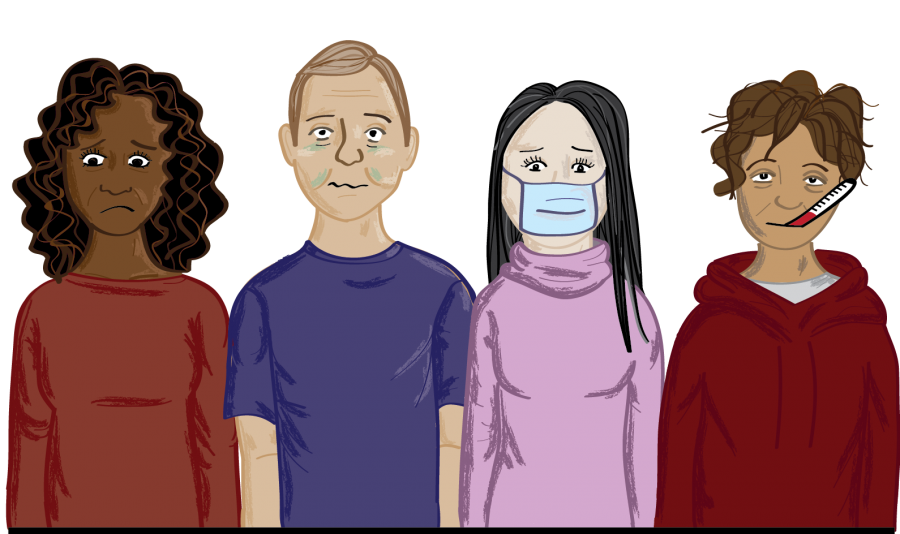President Alison Byerly was met with applause as she walked across the quad last Wednesday. The notice had just gone out. Classes were cancelled for the next two days.
After well over 180 students reported cases of the norovirus, a contagious virus that causes inflammation to the stomach, intestines or both, the college decided to cancel Thursday’s and Friday’s classes.
Now, in the aftermath of the campus-wide shut down, the number of students infected with norovirus is on the decline. Byerly and Director of Health Services Dr. Jeffrey Goldstein said that they believe that cancelling classes last Thursday and Friday and encouraging students to go home played a large role in this trend.
“Once [the norovirus] had taken hold in the residence halls at the start of the week, there wasn’t much we could do about the progression of the illness,” Byerly said. “[A four-day weekend] was a long enough stretch of time that we were confident people would go home and give [Facilities Operations] a chance to get in and clean.”
Lafayette College Residence Life sent a survey out to students following the cancellation of classes to gauge how many students would be leaving campus. Only a little over half of students filled out the survey, Byerly said. But out of that number, 45 percent said they were returning home for the weekend. That percentage, Byerly said, was still significant enough to make a difference on campus.
Goldstein said that one of the reasons the college did not cancel classes earlier was because it seemed by last Monday that the virus was declining for good.
“Monday it was like, ‘We might be getting through this,’” Goldstein said. “Tuesday, not so much.”
Byerly said that she also believed at the time that the virus was almost done passing through campus.
“Had we thought that it would significantly reduce the illness on Monday to cancel classes, we would have done that,” Byerly said.
“The impression we got from our medical advice was the only thing that would make a significant difference was a lot of students leaving campus and we didn’t feel it was worth losing an entire week of the semester given most of the spread occurred during the weekend and we thought the major impact had been made,” she added.
But a spike in the number of cases on Tuesday prompted the Incident Action Group, a committee made up of the heads of multiple campus departments, to reevaluate the decision not to cancel classes.
“We recognized that it was continuing to flow through the residence halls, and so at that point, we were thinking we couldn’t do much to stem that action without clearing the whole campus,” Byerly said.
All of the dining halls closed down that Thursday except for Marquis, so that they could be properly sanitized, Goldstein said. Upper Farinon was the only dining hall open that Friday and Saturday. Lower Farinon and Simon’s reopened on Sunday.
“The Bon Appetit staff were on top of this from day one,” Vice President of Campus Life Annette Diorio said. “It really helped us and helped keep people healthy.”
Even though classes were not cancelled until Wednesday, March 8, Byerly stressed that the college did not consider academics more important than student health.
“Although we were anxious to not miss class time, we didn’t value that more highly than students’ health,” Byerly said.
“We really appreciated that so many students did take our request to leave campus seriously,” she added.
According to Goldstein, the sanitization and prevention of norovirus could not have been done without help from all sides.
“It was a tremendous team effort,” Goldstein said. “It tested the resolve of the college to deal with a significant crisis on campus and I think everyone did a great job.”























































































































